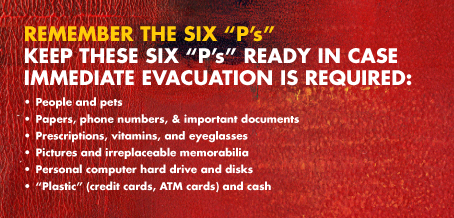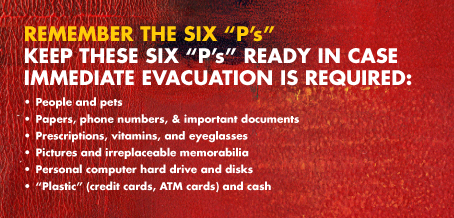Wildfire Evacuation Guide

Wildfires are currently raging all over the western United States. From where I sit in Idaho, evacuations are happening all around, including to the west, where three firefighters just died battling wildfires in Twisp, Washington. Luckily for me (knock on wood), the worst I’ve had to deal with is hazardous air quality due to the constant smoke in the air and an angry toddler who doesn’t understand why she can’t go outside. Yesterday my social media was full of people alerting each other to evacuations, and many people detailed the stress of putting together an evacuation plan on the fly. Obviously for many people it’s too late to pre-plan for evacuation, but for many of us in high-risk areas, it’s worth creating an evacuation plan to have on hand for the future.
While the very worst of the fires should be over by the end of September, thanks to last year’s mild winter and continuing drought through most of the western states, the 2015 fire season is expected to last through November. November! I know that many of us are preoccupied with back-to-school and Halloween preparations these next few months, but I also know that means you’ll be going to at least one store. While you’re there, pick up some extra supplies! According to readyforwildfire.org, here’s what you need to be ready to evacuate:
Emergency Supply Kit Checklist
- Three-day supply of non-perishable food and three gallons of water per person in your party.
- Map marked with at least two evacuation routes
- Prescriptions or other special medications
- Change of clothing
- Extra eyeglasses or contact lenses
- An extra set of car keys, credit cards, cash or traveler’s checks
- First aid kit
- Flashlight
- Battery-powered radio and extra batteries
- Sanitation supplies
- Copies of important documents (birth certificates, passports, etc.)
- Don’t forget pet food and water!
- Easily carried valuables
- Family photos and other irreplaceable items
- Personal computer information on hard drives and disks
- Chargers for cell phones, laptops, etc.
Full information on preparing for evacuation can be found here.
My town is already on fire. What now?
If you haven’t planned ahead (probably the case for 99.9% of us), here’s what the experts recommend:
Leave as soon as evacuation is recommended by fire officials to avoid being caught in fire, smoke or road congestion. Don’t wait to be ordered by authorities to leave. Evacuating the forest fire area early also helps firefighters keep roads clear of congestion, and lets them move more freely to do their job. In an intense wildfire, they will not have time to knock on every door. If you are advised to leave, don’t hesitate!
- Officials will determine the areas to be evacuated and escape routes to use depending upon the fire’s location, behavior, winds, terrain, etc.
- Law enforcement agencies are typically responsible for enforcing an evacuation order. Follow their directions promptly.
- You will be advised of potential evacuations as early as possible. You must take the initiative to stay informed and aware. Listen to your radio/TV for announcements from law enforcement and emergency personnel.
- You may be directed to temporary assembly areas to await transfer to a safe location.
The terms “Voluntary” and “Mandatory” are used to describe evacuation orders. However, local jurisdictions may use other terminology such as “Precautionary” and “Immediate Threat”. These terms are used to alert you to the significance of the danger. All evacuation instructions provided by officials should be followed immediately for your safety.
Do not return to your home until Fire officials determine it is safe. Notification that it is safe to return home will be given as soon as possible considering safety and accessibility.
Read more here.
Evacuation Cheat Sheet:
Remembering all of the above can be a lot when you're worried about being trapped inside a fiery hellstorm, so when it comes down to it, just try to remember the 6 P's of evacuation:
- People and pets
- Papers, phone numbers, and important documents
- Prescriptions, vitamins, and eyeglasses
- Pictures and irreplaceable memorabilia
- Personal computer hard drive and disks
- "Plastic" (credit and debit cards) and cash

There is lots more information available on the Ready for Wildfire website, including stuff for overachievers, like how to make your house more fire-proof and creating an action plan.

Add new comment